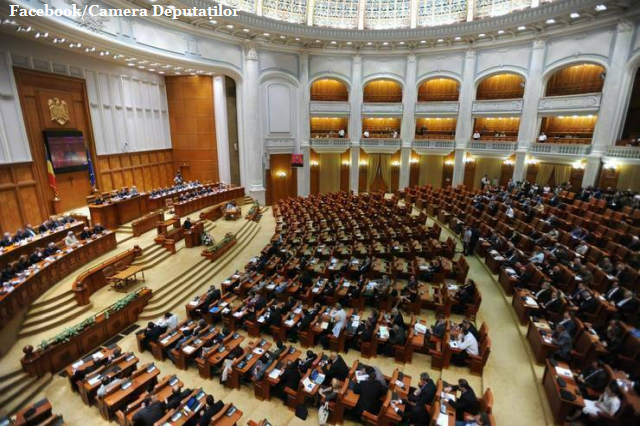New draft of the special pensions law, endorsed
Romania's Chamber of Deputies endorsed the special pensions law

Ştefan Stoica, 17.10.2023, 14:00
The
Social Democrats and the Liberals, holding a majority of seats in Romania’s
Chamber of Deputies, managed to pass a new draft of the special pensions law, after
adjusting it to meet the requirements of the Constitutional Court.
The
only provisions that were revised in the new draft concerned the pensions of
magistrates, to bring the text in line with the requirements issued by the
Constitutional Court judges, and compared to the draft endorsed by the Senate
the Deputies only introduced technical amendments.
The
Social Democratic Party and the National Liberal Party basically rejected all
the amendments tabled by the Opposition. USR, AUR and the Democratic Union of
Ethnic Hungarians in Romania (UDMR) criticised the bill, on grounds that it
actually preserves the high, even indecent level of pension benefits paid to
magistrates and other categories of public sector employees, and that it
continues to overlook the rule that pension benefits should depend on the
amount of contributions paid by a beneficiary to the public pension fund, as it
happens with regular pensioners.
Moreover,
Save Romania Union (USR) claims that non-permanent bonuses have been introduced
in calculations, to benefit party cronies, while UDMR mentions that its
proposal to introduce heavy taxes on all incomes in excess of the president’s salary
was dismissed.
The
Social Democrats reply that the bill complies with both the Constitutional
Court decisions and with the requirements coming from the European Union,
enabling Romania to access the EUR 2.8 bln earmarked for this chapter in the
National Recovery and Resilience Plan.
In
turn, the Liberals claim the Opposition’s amendments were against the decisions
issued by the Constitutional Court. While they admit that special pensions remain
in place, they emphasise that the new bill does take into account, to some
extent, the contributions paid during one’s working period and introduces a
taxation threshold, so that pension benefits are reduced.
Under
the new law endorsed by the Chamber of Deputies, the decision-making body in
this respect, magistrates may retire at the age of 60, with pension benefits
accounting for 80% of the average monthly incomes, including bonuses, received
during the 4 years before retirement.
The
law also allows judges, prosecutors, assistant magistrates with the supreme
court and the Constitutional Court, as well as other judicial personnel, to
retire as of next year if they have at least 25-year length of service and are
aged at least 47 years and 4 months. The retirement age is then set to increase
by 4 months per year, until it reaches 60.
Also,
pension benefits cannot exceed the net income in the last month of work, and
the tax rate is to increase gradually up to 20%. (AMP)






























